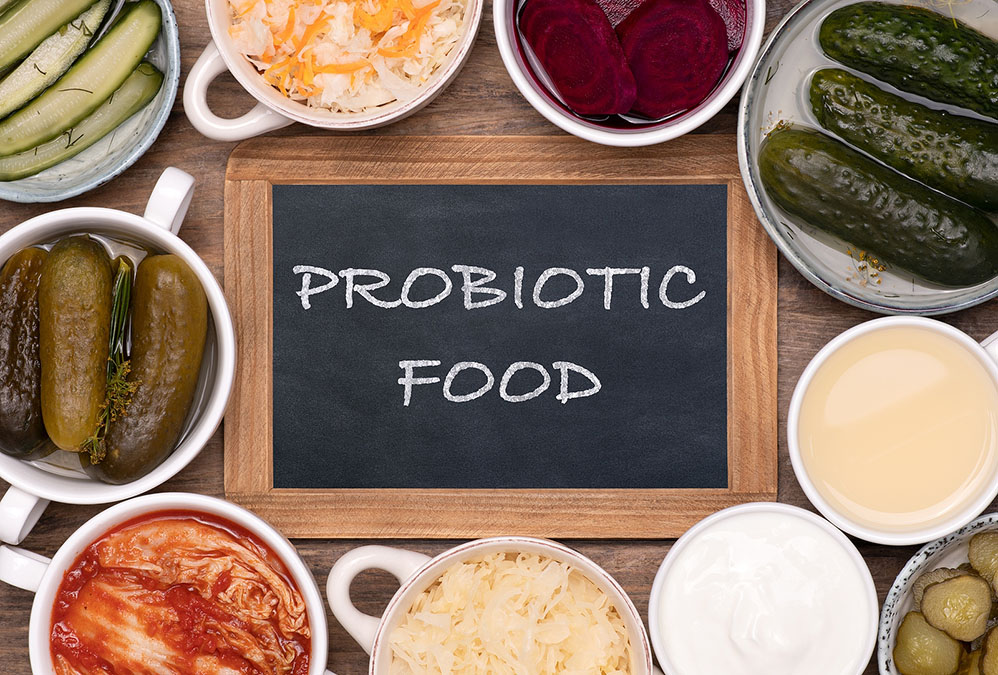 Researchers have long known that high blood pressure is a risk factor for sleep apnea.
Researchers have long known that high blood pressure is a risk factor for sleep apnea.
They don’t know, however, why some people with high blood pressure develop sleep apnea and others do not.
A new study in the Journal of Clinical Hypertension answers this puzzling question.
Surprisingly, it’s all about your gut.
The researchers recruited 52 patients with high blood pressure and collected fecal and blood samples from them.
They then divided them into three groups: a group without sleep apnea, a group with mild sleep apnea, and a group with moderate-to-severe sleep apnea.
This is what they found.
-
1. The sleep apnea patients had lower bacterial diversity in their guts than those without sleep apnea had.
2. The ratio of firmicutes to bacteroidetes was higher in the sleep apnea groups. This profile is common in people who are overweight or obese.
3. Sleep apnea patients had fewer bacteria such as bacteroides that produce short-chain fatty acids. These fatty acids are considered to be healthy.
4. Sleep apnea patients had more bacteria such as lactobacillus that cause inflammation.
These are four reasons why some people with high blood pressure have sleep apnea while others do not.
The good news is that we have a great deal of control over what gut bacteria flourish.
A healthy diet goes a long way. Try some of the following:
-
1. Eat a wide variety of different foods to ensure that no single bacterial species can dominate your gut. A diet dominated by meat and bread isn’t good enough.
2. Eat lots of fiber, as important bacteria feed on them.
3. Eat prebiotic foods that encourage the growth of good bacteria. These include many fruits and vegetables like garlic, onion, asparagus, oats, apples, bananas, and wheat bran.
4. Eat lots of probiotics, which are basically live bacteria. These are found in fermented foods such as yogurt, sauerkraut, tempeh, miso, kefir, and kimchi.
5. Eat lots of plants. They are nutrient-rich and fiber-rich, and research shows they build a diverse bacterial colony in the gut.
These are good strategies to reduce the negative effects of your high blood pressure on your sleep apnea and sleep apnea risk.
Most importantly, try out three easy blood pressure exercises—explained here—that will drop your blood pressure below 120/80 in as little as nine minutes…
If you snore or suffer from sleep apnea, you can get rid of both in three minutes using the simple throat exercises explained here…

 Overcoming IBD
Overcoming IBD Multiple Sclerosis
Multiple Sclerosis Banishing Bronchitis
Banishing Bronchitis Gum Disease Gone
Gum Disease Gone Overcoming Onychomycosis
Overcoming Onychomycosis Neuropathy No More
Neuropathy No More The Prostate Protocol
The Prostate Protocol Brain Booster
Brain Booster
 Ironbound
Ironbound
 Solution for Shingles
Solution for Shingles
 The Bone Density Solution
The Bone Density Solution
 The Ultimate Healing Protocol
The Ultimate Healing Protocol
 The Parkinson's Protocol
The Parkinson's Protocol
 The Chronic Kidney Disease Solution
The Chronic Kidney Disease Solution
 Overthrowing Anxiety
Overthrowing Anxiety The Fatty Liver Solution
The Fatty Liver Solution The Hypothyroidism Solution
The Hypothyroidism Solution
 The End of Gout
The End of Gout The Blood Pressure Program
The Blood Pressure Program
 The Oxigized Cholesterol Strategy
The Oxigized Cholesterol Strategy
 Stop Snoring And Sleep Apnea Program
Stop Snoring And Sleep Apnea Program
 The Arthritis Strategy
The Arthritis Strategy The Vertigo & Dizziness Program
The Vertigo & Dizziness Program The 3-Step Diabetes Strategy
The 3-Step Diabetes Strategy Hemorrhoids Healing Protocol
Hemorrhoids Healing Protocol The Erectile Dysfunction Master
The Erectile Dysfunction Master Weight Loss Breeze
Weight Loss Breeze The IBS Program
The IBS Program The Insomnia Program
The Insomnia Program The Migraine and Headache Program
The Migraine and Headache Program The Neck Pain Solution
The Neck Pain Solution The Menopause Solution
The Menopause Solution The Ejaculation Master
The Ejaculation Master The TMJ Solution
The TMJ Solution The Acid Reflux Solution
The Acid Reflux Solution The Fibromyalgia Solution
The Fibromyalgia Solution The Psoriasis Strategy
The Psoriasis Strategy